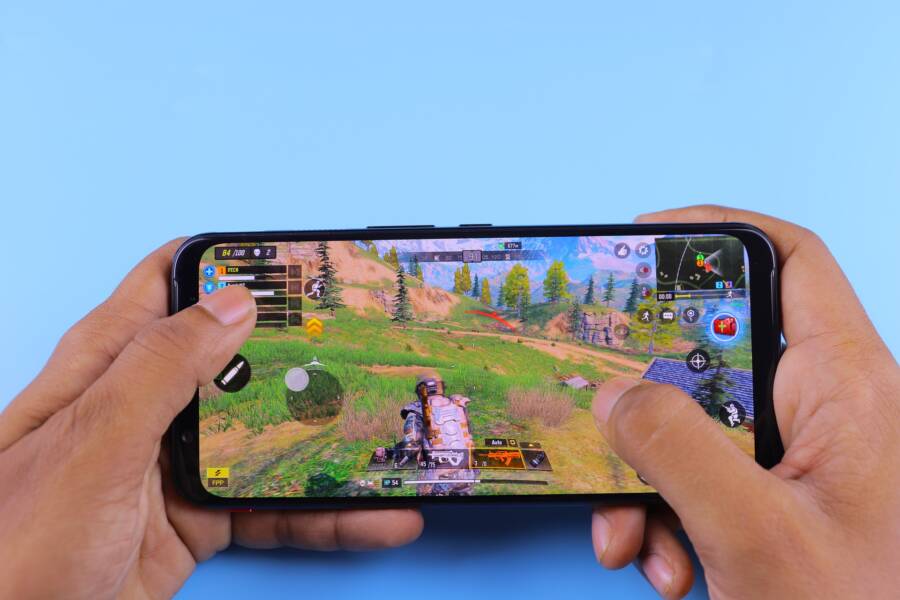Artificial intelligence is everywhere these days. We utilise it in a broad selection of different devices and technological systems, but it is frequently employed in online and mobile games.

When it comes to understanding how AI is utilised in these situations, people’s understanding is often woefully lacking. This is a shame because artificial intelligence does play a broad role in online and mobile games. Let’s take a look at exactly how this is the case.
Creating Responsive Characters
Artificial intelligence plays a significant role in creating a fun, engaging, and adaptive experience for players. The AI is programmed to learn and evolve based on how you interact with it. This means that if you act in a certain way, you will encourage artificial intelligence to evolve to meet your needs.
By analysing your behaviours as a player, artificial intelligence can create a situation that is most beneficial for you. AI can tailor games to players, and it can do this by understanding what it is players are searching for in each game and then altering the way the games are played to match.
It also means that they can create characters that are more geared towards specific players. So, for example, if you had a choice to make an unfavourable decision in a video game, the AI might introduce non-player characters who regard the player with some level of suspicion and doubt based on their past decisions. Those dialogue options are not static; they change depending on what information the AI is given.
Scaling Difficulty
AI can also be used to create a brand-new experience when it comes to scaling difficulty in online games.
By creating different types of levels and experiences to cope with the situation that players are in, the AI can adjust the type of style that the player encounters to have the best gameplay. This may involve making levels or enemies easier or harder to defeat, introducing new obstacles or taking away challenging ones, and giving the player access to better items and hints from randomly generated drops in order to get the best results.
Functionally, it is the responsibility of the AI to create an experience that will be engaging for the player. They do this by working to make sure that the player has a fun and rewarding time, introducing a suitable level of difficulty depending on what that player can cope with.
The Role of the NPC
One of the most primary examples where an AI can help influence the game is through the use of the NPC. Your typical non-player character is designed to interact with players in their environment and often provides key story details or items. However, when you have artificial intelligence that can gauge what’s going on based on the responses and actions of the player, they can then adjust the types of non-player characters encountered accordingly.
For example, if you were capable of saving a town from a monster, characters that you encounter on subsequent visits to the town may reference the good deed you have performed and express their gratitude. This is an example of how artificial intelligence can adjust the dialogue options and gameplay in order to generate an experience that has actual context.
Alternatively, non-player characters can be changed in order to benefit the situation the player is in. For example, a non-player character that is encountering an experienced player might provide different dialogue options to a brand-new player. It is this level of flexibility that makes for an exciting and unique experience.
Evolving Characters
Artificial intelligence can use the actions of the player in order to influence the game. For example, it may be possible to create enemy types explicitly designed to counter the player. If you tend to display similar actions in each combat session, the AI might make opponents designed to counter that gameplay style, forcing players to adapt and develop a new strategy.
By doing this, the gameplay remains fresh and exciting. It’s not just a case of button mashing anymore; when players have to actively think on their feet in order to continue doing well, it creates a level of challenge and unique options. This is particularly prevalent in typical online games like MMO‘s, where it is possible to engage with multiple enemies that all have different behaviours and styles depending on the situation.
Final Thoughts
It is clear to see that artificial intelligence has directly influenced the way video games are played. It’s easy to work out a broad selection of different things to encounter when it comes to AI, and it is vital to take a look at what’s on offer. There are so many different ways to do things here, because there are quite a few choices, which means that people have a lot of different elements to experiment with. It’s definitely up to you to take a look at some of the different choices, and this can take time, but it’s worth it in the long run.
AI has begun to reach even the furthest corner of games, sleeping right down into mobile experiences. It has also introduced a shift in game development because now creators are having to examine how artificial intelligence can play into the role of the game and what they can do to further introduce a new level of complexity. Artificial intelligence is pretty much a prerequisite nowadays, which is nice because it means that players have a diverse, three-dimensional, and constantly evolving experience.
TechnologyHQ is a platform about business insights, tech, 4IR, digital transformation, AI, Blockchain, Cybersecurity, and social media for businesses.
We manage social media groups with more than 200,000 members with almost 100% engagement.